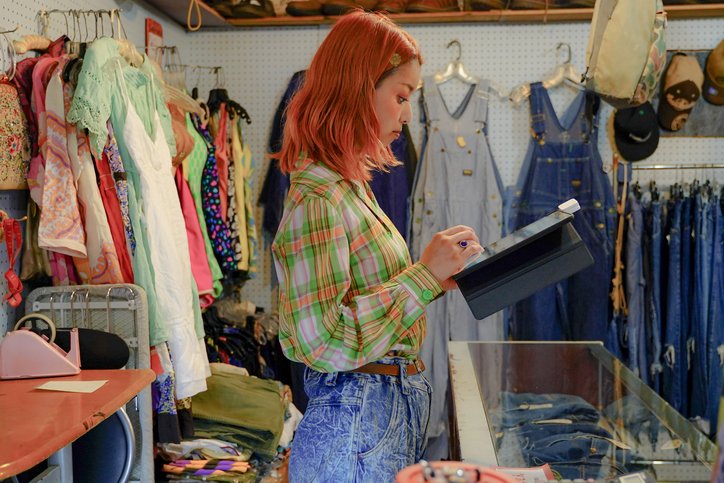Textiles and fashion are responsible for 4-8% of global greenhouse gas emissions, yet according to WRAP, the UK’s adult population spends an estimated £4 billion shopping for clothes each month.
The new study to mark World Circular Textiles Day reveals that the average UK adult has 118 items of clothing in their wardrobes, of which one quarter (26% – or 31 items) were unworn for at least a year.
While many already buy and sell pre-loved clothes, more are open to alternatives schemes to ‘buy new’ shopping, like subscriptions and rental.
An unworn opportunity
The study, the largest into clothing habits ever undertaken by WRAP, shows changes over the last eight years around how long we retain our clothes, and how our openness to new ways of clothes ‘shopping’ could significantly reduce the environmental cost of clothing the nation – and save shoppers millions of pounds.
Between 2013 and 2021, the predicted length of time people in the UK kept a range of clothes increased. Today, non-padded coats and jackets have the longest lifespans at more than six years apiece, while underwear and bras have the briefest at just 2.7 and 2.6 years respectively.
When we buy pre-loved and second-hand vintage, we tend to keep these items longer – nearly a year and a half longer – than those we purchase new: 5.4 years for vintage and preloved clothes, compared with four years for off the peg. If we repair an item of clothing, we’ll typically keep it for a further 1.3 years.
But while our wardrobes are storing more clothes for longer, a considerable number of items are underused. Here, says WRAP, is a prime opportunity for on-trend businesses to provide alternative clothing models like rental subscriptions, and for savvy sellers and buyers to save money, make a bit of cash and grab a bargain.
‘The clothing and textiles sector has the fourth-largest environmental impact on the planet and that’s why WRAP is working with the UK’s biggest retailers and brands to address this through the ambitious targets of Textiles 2030. Many people are already buying and selling pre-loved clothing, but our study shows the huge financial and environmental opportunity that is unworn in all our wardrobes.
‘Textiles 2030 signatories are already beginning to introduce resale and rental business models, but these alongside repair models must become widespread if the fashion industry is to begin to achieve the reductions in greenhouse gas emissions necessary to limit global warming to 1.5 degrees.’
CATHERINE DAVID
Director, Collaboration and Change WRAP
 Play Video about This Rock Might Just Save The World
Play Video about This Rock Might Just Save The World Play Video about Play 2 hours of rock
Play Video about Play 2 hours of rock Play Video about Play 2 hours of brook
Play Video about Play 2 hours of brook Play Video about Play 2 hours of sheep
Play Video about Play 2 hours of sheep











































